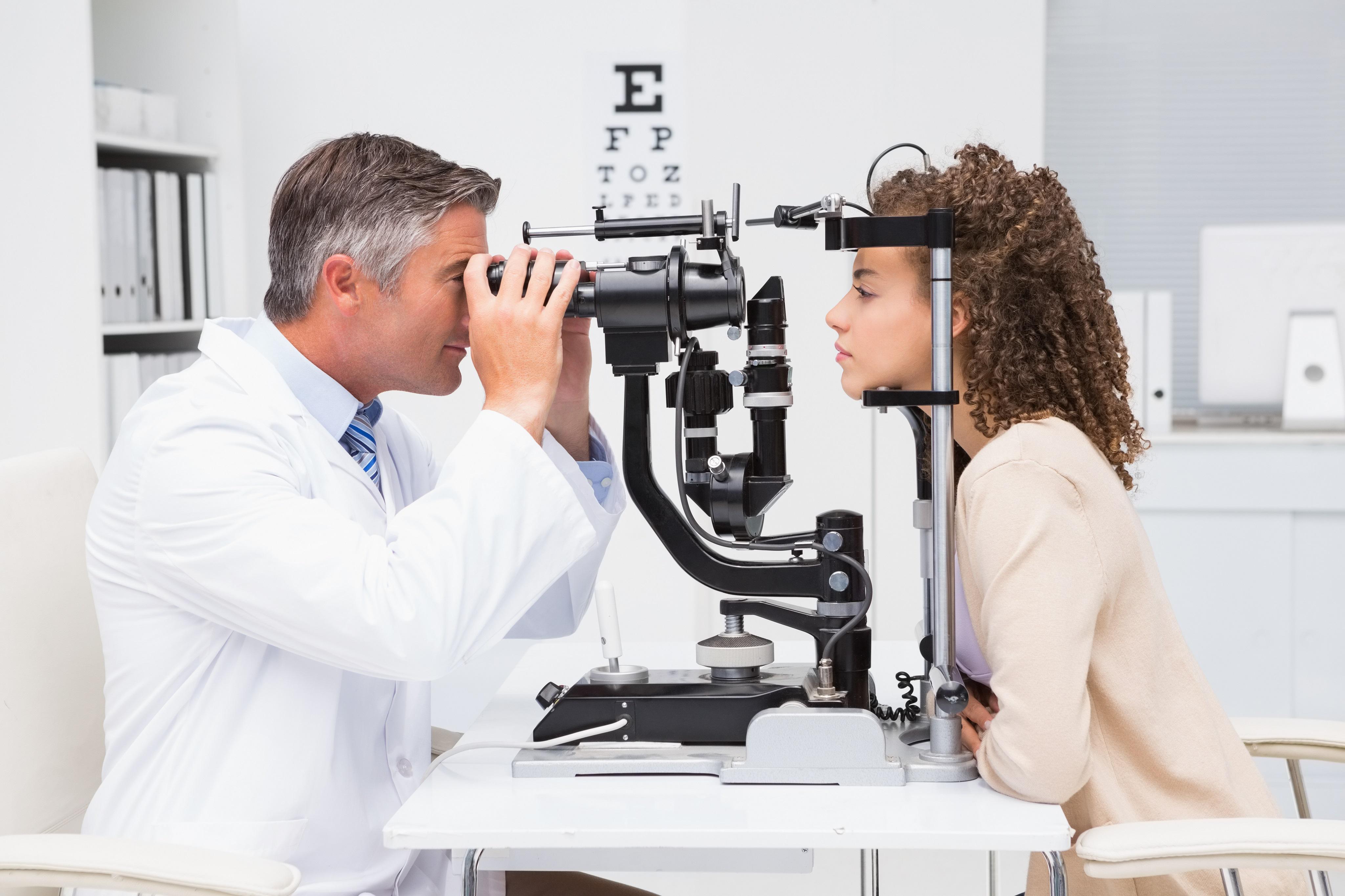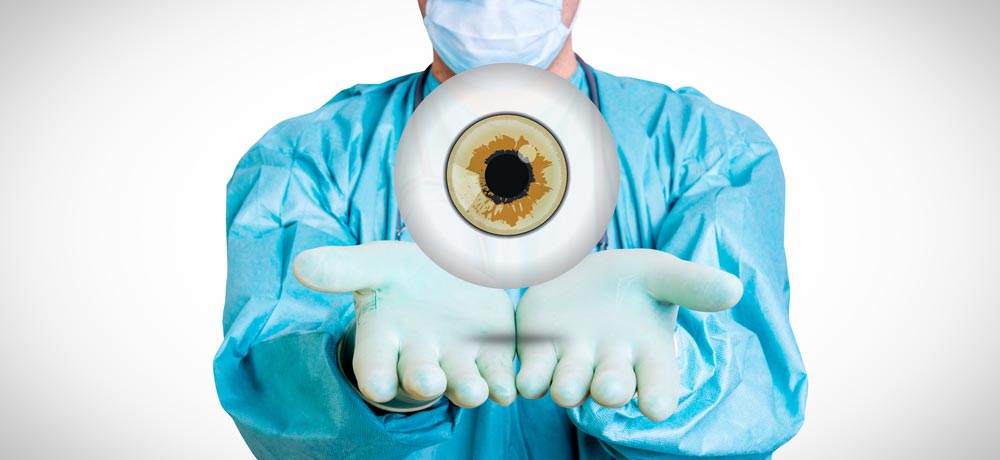Andalusia Eye Facility: Innovating Vision Care for Community Wellness
Andalusia Eye Facility: Innovating Vision Care for Community Wellness
Blog Article
Is Refractive Surgery Right for You? Elements to Take Into Consideration for Better Eyecare
In the realm of eye care, the choice to undertake refractive surgical procedure is a weighty one that requires thoughtful consideration. From the intricacies of one's eye wellness to the details of personal expectations and daily habits, each facet holds value in the more comprehensive landscape of refractive surgical procedure candidateship.
Eye Health And Wellness Assessment
When thinking about refractive surgical treatment, an extensive eye health evaluation is essential to evaluate the viability of the treatment for every individual. eye doctors in andalusia. This evaluation entails a series of tests and examinations conducted by an eye treatment expert to determine the total health and wellness of the eyes, the presence of any underlying conditions, and the stability of the refractive error
During the assessment, numerous aspects are taken into consideration, such as the person's medical background, present eye prescription, corneal density, pupil dimension, and tear film top quality. These assessments aid to identify any type of contraindications to refractive surgery, such as corneal problems, cataracts, or neglected eye infections. In addition, the evaluation assists to manage client assumptions concerning the possible outcomes of the surgical treatment based upon their unique eye attributes.
Ultimately, the eye health and wellness examination is essential in guaranteeing the security and efficiency of refractive surgical procedure, as it gives valuable insights into the individual's eye health and wellness condition and aids establish the most suitable treatment choices for accomplishing ideal aesthetic end results. (eye doctors in andalusia)
Lifestyle Evaluation
A complete way of life evaluation is important in establishing the viability of refractive surgical treatment for an individual's visual correction needs. Way of life aspects such as line of work, hobbies, and day-to-day activities play an essential function in the decision-making process regarding refractive surgical procedure. Individuals with professions that entail a high degree of physical task or direct exposure to environmental components might have different aesthetic demands compared to those with inactive desk work. Recognizing exactly how a person's way of living might impact their vision post-surgery is essential for managing expectations and making certain optimal results.
Additionally, way of life practices such as sports participation, outdoor tasks, or also skincare routines can influence the recovery procedure and general success of refractive surgical treatment. By conducting an extensive way of life assessment, eye treatment experts can tailor their recommendations and therapy strategies to satisfy the distinct needs of each client, ultimately leading to improved aesthetic results and fulfillment.
Expectation Alignment

Patients require to comprehend that while numerous people achieve 20/20 vision or far better following refractive surgical procedure, some may still call for glasses for specific tasks like reading or driving at evening. Taking care of these expectations aids avoid dissatisfaction and next page dissatisfaction post-surgery, leading to a much more positive general experience for the person.
Risk Evaluation

Variables that may enhance the threat of problems consist of age, certain medical problems like autoimmune conditions, unsteady vision prescription, slim corneas, and impractical client assumptions. Additionally, choosing a knowledgeable and skilled specialist, adhering to pre and post-operative care directions faithfully, and disclosing any appropriate clinical history can help reduce dangers.
To decrease the likelihood of issues, eye doctors perform extensive pre-operative examinations to recognize any contraindications to surgical treatment. They additionally discuss the potential dangers and advantages with people during the appointment process. By participating in open interaction and shared decision-making, both the person and the eye doctor can work with each other to identify if refractive surgical treatment is the best option based on private threat accounts and preferred results.
Examination Importance
Thinking about the vital duty of educated decision-making in analyzing risks and potential issues in refractive surgery, the consultation procedure holds substantial value in assisting clients towards optimum end results. Throughout the examination, the ophthalmologist evaluates the person's eye wellness, refractive errors, and overall suitability for surgical procedure. This first analysis is vital in figuring out one of the most ideal treatment for every individual, considering aspects such as corneal thickness, student size, and existing eye problems.
Additionally, the assessment functions as a possibility for clients to review their expectations, concerns, and any kind of concerns they might browse around here have relating to the surgical treatment. Clear interaction between the patient and the doctor is vital to make certain reasonable assumptions and a thorough understanding of the prospective risks and advantages included.
Additionally, the appointment allows the specialist to describe the different surgical choices readily available, their corresponding outcomes, and the post-operative treatment required. This detailed conversation empowers clients to make educated decisions about their eye care, bring about better fulfillment and end results post-surgery.
Conclusion
Finally, people taking into consideration refractive surgery ought to go through a thorough eye wellness evaluation, evaluate their way of life routines, straighten their assumptions with possible end results, assess the associated dangers, and prioritize examinations with eye treatment experts. These aspects play a crucial role in identifying the suitability of refractive surgical treatment for every individual, guaranteeing ideal results and fulfillment with the treatment.
Individuals thinking about refractive surgical treatment commonly have high expectations concerning the results, expecting perfect vision without the need for glasses or contact lenses. While refractive surgery can greatly boost vision and lower dependence on aesthetic aids, it is crucial for patients to recognize that outcomes may differ based on private elements such as the degree of refractive mistake, corneal thickness, and overall eye wellness.
By involving in open communication and shared decision-making, both the ophthalmologist and the client can function with each other to identify if refractive surgery is the find out here appropriate selection based on specific risk profiles and wanted results.
Considering the essential function of informed decision-making in examining risks and possible problems in refractive surgical procedure, the examination process holds considerable importance in assisting patients in the direction of optimal results. During the examination, the ophthalmologist examines the patient's eye health and wellness, refractive mistakes, and overall viability for surgical procedure.
Report this page